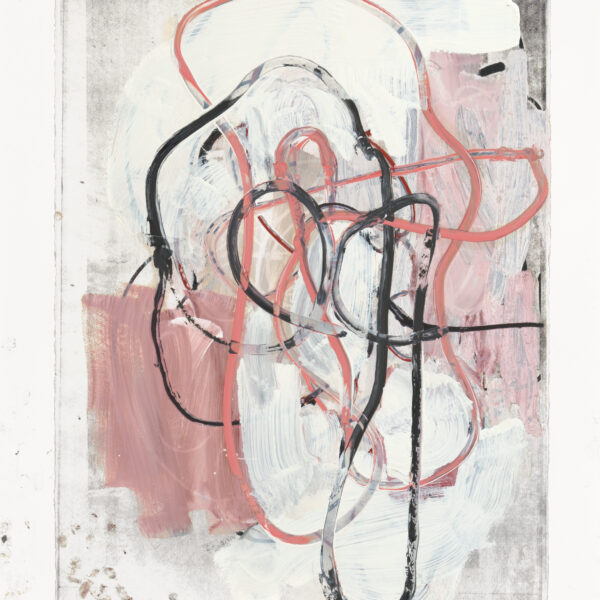In the 1990s, he was one of those responsible for bringing the bespoke design hotel concept across to London with OneAldwych; then, he changed things up again with the Hoxton Hotel’s revolutionary ‘luxury budget’ conceit. What KURT BREDENBECK has planned next is another leap forward; and all this forward momentum is grounded in his surprisingly infectious enthusiasm for the idea of the hotel itself.
Though The Hoxton is billed as a ‘luxury budget’ hotel, when first entering its gorgeous lobby you’d think that the ‘budget’ part of the label had been included by mistake. This would no doubt greatly please its Founder and Co-owner, Kurt Bredenbeck, who fought a few battles during the development process to realise that the lobby as it is now experienced, exactly according to the vision he had for it.
What is your perception of a hotel? A rip-off, some say. A rarely attainable luxury, perhaps. Or, as Kurt says, “a treat, not a drag. I had a girlfriend whose father – though a wealthy doctor – thought hotels were a rip-off. I took her to these beautiful Grand Hotels when we travelled Asia, and it amazed her that they could be from 1885 and still have all their original furnishings, still the same family owning it. The greatest treat when you’re travelling on business is to have a night in with room service, a good movie and perhaps a glass of wine.
“There are many conceptions of travelling, though, aren’t there?” he says. “The idea that the journey itself is the most important aspect; or where you stay; or the location; it’s a trade off between those things.” The hotel is integral in this dynamic, whether travel is business or pleasure; Kurt evidently perceives that hotels sell their experience: aspirational living or freedom from the ordeals of travel. Maintaining this offer of the hotel while allowing guests to balance those different aspects of travel is what inspired the concept of luxury budget.
“I always wanted to do a better budget hotel: even though it’s pegged at the price level of a Holiday Inn Express, I wanted it to feel like a Grand Hotel and so I specifically incorporated things into the luxury part of the concept: the quality of the mattress, the linen. Even the window: in a lot of budget hotels, you have a tiny window and it’s like prison. It’s about making decisions: the rough and the smooth. You’ve got to consider, what do I want?”
It’s in the lobby of the Hoxton that I first meet Kurt, which is suitable because it’s the heart of the hotel, both symbolic and showstopper. I’m perched at its familiar bar, and across the large space I spot him walk out past reception. He’s an athletic-looking guy in his forties of the sort best described by Tom Wolfe or Bret Easton Ellis in novels about 80s New York business excess, all strong features and purpose and proportion.
It’s a huge space, the lobby: you immediately perceive both its double-height and it’s width when you enter; either side are plush brown leather sofas around tables, all of varying size and state of vintage ‘wear’, at either side large ornate fireplaces. Just beyond this, the reception is to the left and to the right, a very New York looking bar with bottles arranged.There’s chrome and exposed brick and concrete and more leather. Behind them a courtyard and, held slightly apart and distinct from the rest, a restaurant.
It’s very comfortable and surprisingly welcoming– surprising, particularly, to those of my friends who feel a sense of trespass whenever they step into somewhere populated by people above their income bracket. This is all by design.”I wanted people to come in to an open plan bar and have drinks, that isn’t like a restaurant. People from the neighbourhood to come in and use their computer, use our Wi-Fi, have a coffee.” Bear in mind that while this is coming about, in the late 90s, that neighbourhood was still “all barbed wire and crack pipes.”
The boutique (or design) hotel concept which Kurt’s two main ventures can be placed in the category of is fairly recent, born in 80s New York Ian Schrageropened Morgans Hotel, followed by the Royalton. The notion of this big lobby as public space, however, is much older: a classic Grand Hotel concept, born with them in the 1850s.
Though the word has a longer history, the concept of the hotel only came about with railways – with that new mobility, the traditional situation of rich staying with rich and others at pubs and inns became insufficient. This industrial/Imperial origin is also why there are so many vintage or grand hotels scattered throughout the East: businessmen traveling by sea and rail through the colonies had the same requirements as when traveling through the mill-strewn provinces.
I only learn this through talking with Kurt; certainly you wouldn’t glean anything so illuminating from Wikipedia’s page on hotels. (He’s currently finishing ‘Vintage Style: Grand Hotels of Africa & the Orient’, a luxury book on the subject.) His understanding of the heritage of hotels and reference to it in his work is what marks his hotels out as unique; and through this understanding he’s well placed to advance how we perceive the form and what it might provide.
The hotel has always had a much greater role than basic travel accommodation: since their advent, they have been cornerstones of the communities around them, their quality, number and success indicative of the state of that community’s economy–whether because of the industry they enable by sheltering businessmen or the industry they create through holidaying, when the hotel becomes the purpose for travel as well as its destination.
The Hoxton shows the symbiotic relationship of hotel and locality in the conception of its lobby-bar designed as much for the neighbourhood to use (and which they – I – do) as for guests. Developing there represented a gamble at the time, 10 years ago, when Kurt first worried that “Shoreditch wasn’t really come-along enough, there was nothing here but a few bars.” Yet his faith, and that of those like him, is what brought the area along, making it a destination; that in turn repays his faith and allows the hotel to be a success.
It’s by understanding the hotel’s relation to its community, I think, that Kurt is able to advance its role with his latest and most admirable project: his company Quest Hotels have partnered with Crisis, the national charity for single homeless people, to found a bespoke hotel in London that would be run as a training facility for disadvantaged and previously homeless local residents.
Let’s unpack why this is a good thing (beyond the obvious), and why it’s so fitting within Kurt’s career trajectory. It came about when he’d returned from his initial research trip around Africa and the Orient for the Vintage Style book, and “I was looking for the next project.” He started volunteering at Crisis’ cause cÃlèbre Shelter from the Storm, whose supporters in music and fashion have been innumerable, and got stuck in, scrubbing and cleaning. The hotelier’s instinct led him to implement a series of changes, one of which involved residents picking up their clean sheets on arrival and making their own beds. “After all,” he says, “running a shelter is not so different from a hotel!”
It was this experience, combined with the inspiration of the nearby Skylight Cafe at Crisis’ headquarters that operates on a similar basis to the proposed hotel, which inspired the project. When I apologetically call Kurt the ‘Hotelier Jamie Oliver’ as a comparison, his response is surprisingly affirmative: “yes, what we’re doing is very similar to 15 [the restaurant which serves as the trading arm of Oliver’s charity which trains disadvantaged youth in cookery and the associated business]!”
Kurt has also been involved in the mentoring scheme at Crisis, helping the homeless start businesses and careers, so he has close ties with the charity. With regards to the Crisis’ cafe operation and looking forward to the hotel, Kurt says, “Even with catering, or kitchen cleaning, they’ve started qualifications to do with the catering business. And then we teach them the skills of working with customers, using the till. And then you run them through every part of the business, from checking people in to marketing. Even if it’s only training for a year, it’s still something.”
And how will the hotel be marketed itself? “It’ll be small and custom-designed – 30 or 40 rooms. But it will be positioned and promoted worldwide as a unique, ‘bespoke hotel’ – the only one in the world set up to train and be run by the homeless and ex-homeless. It’ll still be an enjoyable, fun, comfortable, stylish hotel experience in central London, but it will have a difference. ”
They’re not going to work forever here, just a year programme to get some experience and then they’ll get a personal recommendation from me to help them get a job. It’s still early stages, and we have exactly the same complications as setting up a normal hotel, with finding land, development and funding. It’s a very different situation now. It’s not what it was round here [when he set up the Hoxton]. So many people want to do stuff here now, especially after the success of the Hoxton.” And why are you doing it? “To give back to a community that I love. We’ll run it like a normal hotel, so we will make a profit, but it will be reinvested back into the whole thing.” It transpires that for the hotelier, too, as well as the hotel, that relationship to the community is vital.
















